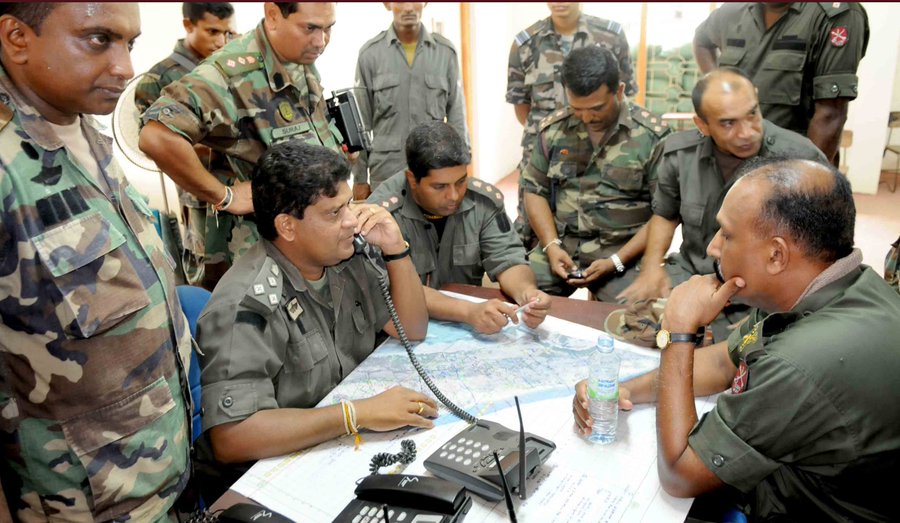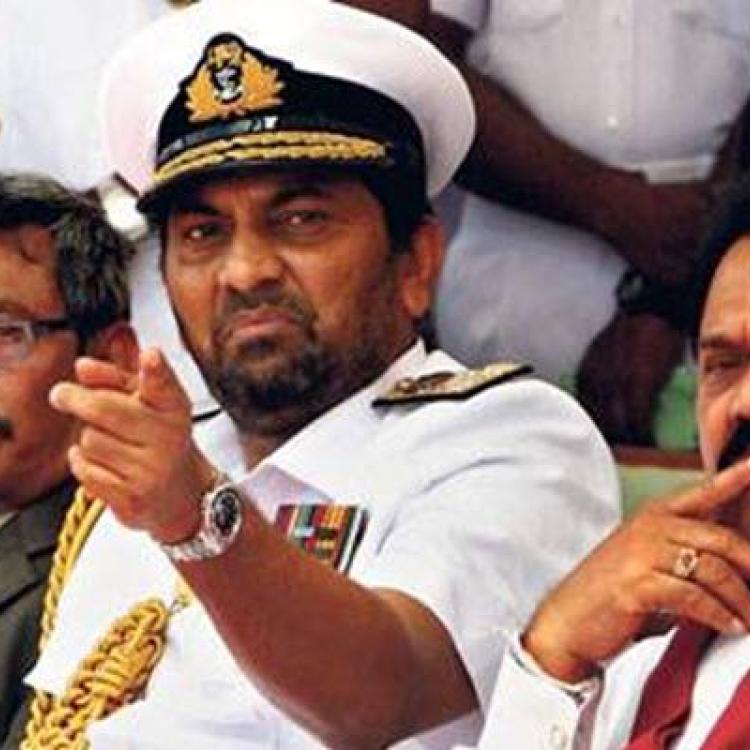
File photograph: Gunaratne on the far fight, at the war front in 2009.
The International Truth and Justice Project (ITJP) has submitted a dossier to the UK Foreign, Commonwealth and Development Office calling for targeted sanctions against retired Sri Lankan General Kamal Gunaratne, citing his direct involvement in war crimes, torture, and systemic human rights abuses.
The submission, dated 8 May 2025, outlines a detailed case for the designation of Gunaratne under the UK’s Global Human Rights Sanctions Regulations 2020. It presents extensive evidence of his alleged command responsibility in serious violations of international humanitarian and human rights law, including during the final stages of Sri Lanka’s armed conflict in 2009 and in the post-war period.
Role in major atrocities
Gunaratne served in numerous high-ranking military and civil positions over four decades, including as Commander of the 53 Division during the 2009 genocide, and later as Commander of the Security Forces Headquarters – Wanni and Competent Authority for Internally Displaced Persons (IDP) camps. He was most recently the Secretary to the Ministry of Defence from November 2019 to September 2024.
The ITJP documents Gunaratne’s involvement in a wide range of abuses, including:
• Deliberate shelling of civilians and hospitals in government-designated ‘No Fire Zones’ during 2009, killing tens of thousands of Tamil civilians.
• Extrajudicial executions of surrendered LTTE fighters, including high-profile cases such as Isaipriya, a Tamil broadcaster.
• Arbitrary detention and torture, including sexual violence, at notorious detention centres such as Joseph Camp.
• Brutal treatment of civilians in IDP camps, where widespread violations including torture and enforced disappearances occurred under his watch.
According to the submission, Gunaratne issued orders to use indiscriminate weapons like multi-barrel rocket launchers in areas densely packed with civilians, fully aware of their consequences. He also admitted in his own writings that he instructed troops not to accept surrenders from those he labelled “terrorists.”
Command responsibility and failure to act
The ITJP’s submission draws on United Nations reports, including the Office of the High Commissioner for Human Rights (OHCHR) investigation and the UN Secretary-General’s Panel of Experts, which found compelling evidence of war crimes and crimes against humanity.
It argues that Gunaratne had effective control over his troops, maintained direct surveillance of the battlefield through UAVs, and was aware of the humanitarian situation on the ground. Despite this, he failed to prevent or punish violations, making him liable under international legal standards of command responsibility.
Calls for urgent UK action
The ITJP contends that sanctioning Gunaratne would meet the UK’s policy objectives of deterring torture and conflict-related sexual violence. It would also align with the UK’s March 2025 sanctions on other Sri Lankan military officials implicated in similar crimes.
“Sanctioning Kamal Gunaratne will send a clear message to the Sri Lankan government that egregious human rights violations in the name of national security will not be tolerated,” the report states, adding that such action is necessary given the complete lack of domestic accountability mechanisms in Sri Lanka.
The submission also emphasises the relevance of the case to the UK Tamil diaspora, many of whom are victims or relatives of those affected by the violations. It follows growing international momentum, including the installation of Tamil genocide memorials abroad and increasing calls for criminal accountability from the Tamils and human rights advocates.
Background
Gunaratne is best known for commanding the 53 Division during the closing months of the war, including operations in Mullivaikkal, where mass atrocities occurred. He has previously written extensively about his role in the war, often defending the military campaign and denying wrongdoing.
The ITJP’s recommendation includes corroborating witness statements, UN documentation, and analysis of military command structures, arguing that Gunaratne is an “involved person” under the UK’s Global Human Rights Sanctions framework.
If adopted by the UK, sanctions could include asset freezes and travel bans.

